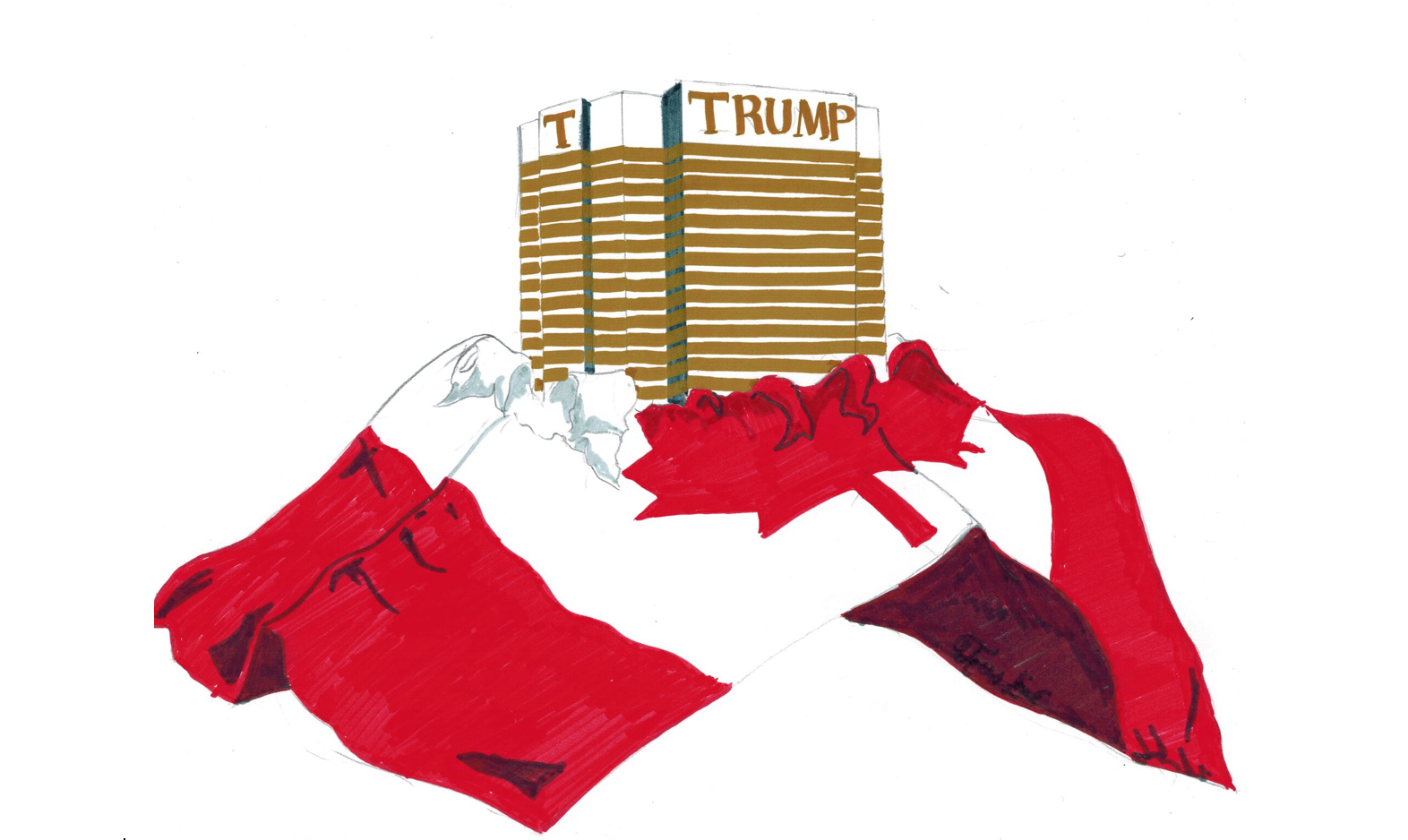Canada in the era of Trump
PM forced to take controversial positions as of late and now that can change with Trump
It has been an interesting month for the Liberal government in Ottawa. Perhaps for the first time since taking power, the Prime Minister and his cabinet were forced to publically take clear and controversial positions on a variety of pressing social, economic and political issues. No longer could the Prime Minister vaguely refer to a collection of broad platform promises or tell the media he was simply considering all the options.
First, it seemed as though the government would be soon deciding it would not be reforming the Canadian electoral system, despite being elected on a mandate to ensure the 2015 election was the last conducted under the first-past-the-post system. In a truly insulting display in the House of Commons a week later, the Democratic Institutions Minister disregarded the long awaited by-partisan report on the issue, which highlighted that thousands of Canadians wanted change despite the Liberals stating they would wait for more interest in the issue according to CTV News.
That same week, further positions had to be taken including the government announcing it would approve the construction of two oil pipelines, despite increasing calls from British Columbian politicians, scientists, and Aboriginal groups that such a project would be destructive.
In terms of infrastructure, a report from the Bank of Montreal that alleged the Liberals’infrastructure investment fund was so small it was actually hurting the economy periled the Liberal government. The Prime Minister’s praise of late family friend, Fidel Castro, only added to the government’s mounting difficulties.
The declaration of positions on key issues is only going to be complicated even more with the election of Donald Trump. Although the Prime Minister and the President-elect could not be at more opposite ends of the political spectrum, the effects the Trump presidency will have on Canadian politics could be varied. For example, Trump’s strong opposition to the Trans-Pacific Partnership, a free trade deal between Canada, the United States, and twenty-eight other Pacific Rim countries, means Trudeau will never have to take a strong stance on the domestically contentious deal as it appears without the American president’s support it will go limp. Additionally, the actions of the Prime Minister, however questionable, when compared with the policies of Trump, will always remain on the left of the political spectrum, ensuring a progressive image of the government for years to come. It seems likely the government’s increased military deployment and dedication to Harper’s failed climate standards will continue to go unnoticed.
In light of these political benefits, Trump’s election will undoubtedly strain the governing Liberals’ international and domestic relationships. Trump’s promise to abandon international goals established at the Paris Climate Conference last year has given the opposition Conservatives a loaded gun to repetitively hammer the government’s climate policy. The Liberal Party, who historically outperform Conservative governments in foreign affairs, will also be faced with a variety of awkward situations on the international stage. Liberal diplomacy will be pressed as the Prime Minister is forced to weigh supporting Canada’s long-time alliance with its strong southern neighbour with maintaining international relations outside of North America.
Perhaps most disappointing about Trump’s elections for Canadians will be the end of the media-dubbed Obama-Trudeau “bromance.” Although often quite over the top, the relationship between the White House and Ottawa was unique for the twenty-first century. Not since Bill Clinton’s presidency has policy between the nations mirrored each other so precisely.
Whether the Trudeau government chooses to capitalize on the political benefits Trump’s election has on their public image remains to be seen. The government will certainly find its centre-left polices continuously challenged as the American President diverges down a very different path domestically and internationally.
Trump’s election can certainly act as a warning sign to the Trudeau government. With right-wing nationalism rising in the Conservative party through leadership candidates like Dr. Kellie Leitch, the Liberal government, and indeed all Canadian progressives, have been warned that without attention to Canada’s growing income-inequality and the issues of the struggling working class, the rise of a demagogic leader, like Trump, in Canada is not unlikely.
Image courtesy of Tess King
